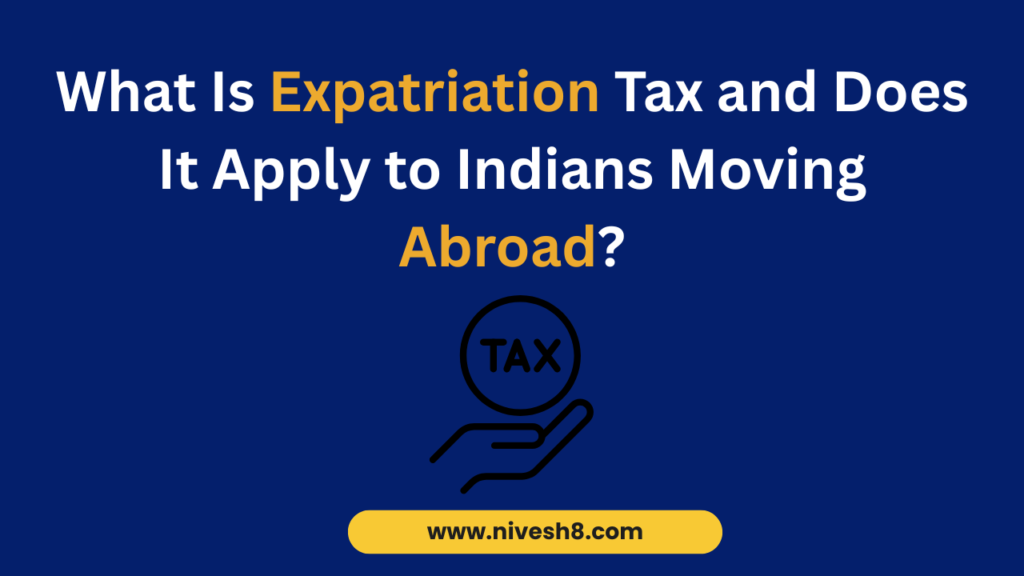More Indians working, studying, or settling overseas raises questions about taxes. One often discussed issue is expatriation tax, mostly used in nations like the United States. Still, what does it mean exactly? And ought Indians to be concerned about it? Let’s break out expatriation tax and clarify where it fits and how it might affect you.
Export Tax: What is it?
Mostly in the United States, expatriation tax is a unique exit tax paid when someone renounces their citizenship or permanent residence in some nations. It’s essentially a tax on unrealized gains, as though you sold everything the day before you quit or leave. Therefore, depending on your total wealth and income, if you are a US citizen intending to renounce or a Green Card holder, you could have to pay expatriation tax.
Does India levy an expatriation tax?
NO. India does not now tax expatriation taxes on citizens or residents who leave the nation or renounce citizenship. Still, there are some rather significant tax-related guidelines to consider:
- The days you spend in India determines your residency status.
- Indians pay taxes on world income.
- Only Indian income taxes non-residents.
You thus need to update your tax records, bank accounts, and investments even if you move overseas and become an NRI and are not taxed on foreign income in India.
When should Indians give expatriation tax top importance?
You might be impacted just if you became a US citizen or Green Card holder and have Indian origin.
- You are currently renouncing your long-term Green Card or US citizenship.
- Your average income, or net worth—which is currently roughly $2 million—above US tax thresholds.
Under such circumstances, not Indian tax laws but rather the US expatriation tax applies.
Important Actions Should You Be Leaving a Nation Like the US
- To declare expatriation—should one be in the US—file form 8854.
- Pay any exit taxes should you be a “covered expatriate”.
- Accurately report your world assets and income.
- See a tax consultant conversant in international tax rules.
Essential Advice for Indians Expanding Globally
- Every financial year, find out your residence status.
- Tell your bank if you intend to become an NRI and translate accounts to NRO/NRE.
- Update KYC and PAN-Aadhaar should you be leaving permanently.
- If you hold dual citizenship in nations with expatriation tax laws, be careful.
At Last Consideration
Unless you are renouncing US citizenship or long-term residency, most Indians find expatriation tax to be not a factor. However, tax laws vary nation by nation; hence, it is advisable to make advance plans and file correctly before leaving or changing your citizenship. When in doubt, ask a tax professional and keep both countries compliant.

